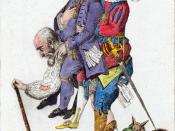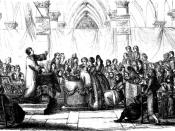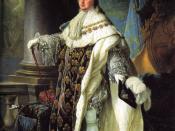What were the causes which led to the French Revolution?
During the 17th and 18th centuries, France was ruled by an absolute monarchy. Still, a series of events quickly put an end to this system as the French Revolution took place in 1789, provoked by a series of causes such as the collision of powers between the bourgeoisie and the aristocracy, the revolutionary ideas from the American Revolution and the Enlightenment, and by the financial debt of the government and the long-standing political differences in it.
The Age of Enlightenment during the 18th century brought new ideas into Europe, as the ideas and writings of philosophes such as Montesquieu, Voltaire and Rousseau spread over France. Many ideas from this era appealed to the bourgeoisie, as they started thinking that a liberal society could flourish with free commerce. Also, ideas from other thinkers such as John Locke inspired people, especially those from middle and lower classes, who saw how their condition would be favoured with human rights.
Revolutionary ideas from the American Revolution also influenced a great part of the French population as France itself helped the American revolutionaries with troops and supplies to be able to fight "against tyranny". French people soon saw themselves identified with revolutionaries in America, and they joined in the beliefs of the superiority of a republic over a monarchy, liberal freedoms of all men, as well as the belief of "no taxation without representation". All these ideas, both of the Enlightenment and the American Revolution, appealed to a vast majority of the population who started questioning an absolute monarch's right to rule.
Still, the most influential factors which led to the French Revolution were France's social and political inequalities and its financial difficulties. By 1789. France was an absolute monarchy with a weak monarch.


